Guides
Acts of ParliamentDevolved GovernmentHouse of CommonsHouse of LordsLegislative ProcessWhitehallPolitical PartiesThe Political Process Display All

Money Bills
Money Bills are Bills that deal solely with expenditure. The 'privilege' of the Commons on financial arrangements has long been accepted. The Commons Speaker designates a Bill, a Money Bill, before it arrives in the Lords.Read More
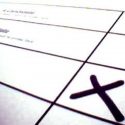
Next UK General Election
With the repeal of the Fixed Term Parliament Act, Boris Johnson will have the power to call a General Election prior to May 2024 should he wish to do so. Israel and Japan also both allow their governments to decide the next election date.Read More
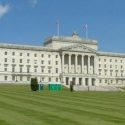
Northern Ireland Assembly
The Northern Ireland Assembly has power to legislate in a wide range of areas that are not explicitly reserved to Westminster, and to appoint the Northern Ireland Executive. The Assembly sits at the Parliament Buildings at Stormont in the east of Belfast.Read More
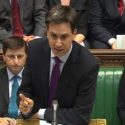
Oral Questions
Each Government Department's Ministers face oral questioning at least once every four weeks in the House of Commons. Questions on the Order Paper not reached in the time allowed receive a written answer.Read More
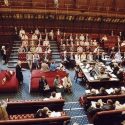
Parliament Act
The Parliament Act allows for a Bill to become law without the agreement of the Lords when certain conditions have been met. The Bill must have been introduced and passed by the Commons in two consecutive Sessions, with the Lords on both occasions actively preventing its passage.Read More

Parliamentary Branch
Each government department has a Parliamentary Branch. The Branch is charged with managing the department's relations with the House of Commons and the House of Lords.Read More
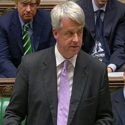
Parliamentary Private Secretaries
Often referred to as a Minister's 'eyes and ears in Parliament', or as a simple 'bag carrier', the Parliamentary Private Secretary supports a particular government minister in his or her duties. It is the first rung on the ministerial ladder for a backbench MP.Read More
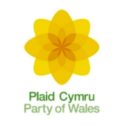
Plaid Cymru
Plaid Cymru (the Party of Wales) is a Welsh Nationalist party that sits on the left of the political spectrum. The party is far less of an electoral force than its Scottish counterpart, polling around 10% of the Welsh vote in recent General Elections.Read More

Pre-legislative Scrutiny
Draft Bills are normally subjected to pre-legislative scrutiny at the hands of a joint-committee of MPs and peers formed for that purpose.Read More

Pressure Groups
A Pressure Group is an organised group united in the promotion of a common cause, with the aim of influencing government policy. The former Home Secretary, Douglas Hurd, once famously described Pressure Groups as ‘serpents that strangle efficient government’.Read More
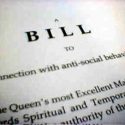
Primary Legislation
Primary legislation (Bills and Acts) is split into two categories - Public Bills and Private Bills (with Hybrid Bills in a sub-category between the two).Read More
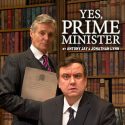
Prime Minister
The leader of the largest party in the House of Commons is by convention asked by the Monarch to be Prime Minister and to form a government in a ceremony known anachronistically as the 'kissing of the hands. The Prime Minister has a wide range of direct powers.Read More

Prime Minister’s Official Spokesperson
The Prime Minister's Official Spokesperson is responsible for briefing the press and broadcast journalists on most weekdays when Parliament is sitting. Initial plans for these UK briefings to be televised, as in the US, were put on hold in early 2021. Read More
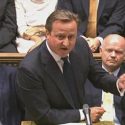
Prime Minister’s Questions
The Prime Minister comes to the House of Commons each Wednesday when Parliament is sitting to answer questions from back-benchers and opposition leaders. The session is due to last 30 minutes, albeit under former Speaker John Bercow, they extended far longer than scheduled.Read More
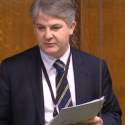
Private Members Bills
Private Members Bills are Public Bills that are introduced by backbench Members of Parliament. The Abortion Act, 1967, introduced by the then Liberal MP, David Steel, is perhaps the most famous Private Members Bill in recent times.Read More
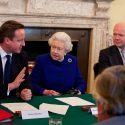
Privy Council
The Privy Council, as body of government, predates the Cabinet and the existence of the Prime Minister by many centuries. Originally the private council of trusted advisers surrounding the sovereign, it has evolved to become a somewhat hidden instrument of government.Read More
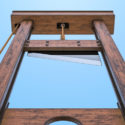
Programming
All Government Bills are programmed, also known as timetabling. The programming of every Bill is a recent development. Historically 'guillotining' debates on Bills was used sparingly and only for key legislation.Read More

Queen’s Speech
The State Opening of Parliament, with all its pageantry and pomp, marks the beginning of a new Parliamentary Session. In the associated Queen's Speech, the Monarch reads out the Government's proposed legislative programme for the Session. During the event, an MP is held hostage at Buckingham Palace until the Monarch returns.Read More


